Reflections of a Graduand; The Experience of Studying Horticulture in JKUAT
On 30th June this year, hopefully on a brighter day than this one (the weather in Juja today has cold mood swings), Jomo Kenyatta University of Agriculture and Technology will be holding its 27th Graduation Ceremony, gifting the society with yet another group of highly qualified and equipped graduates ready to positively transform the world. Candidates who have qualified for conferment of various degrees and award of diplomas will on this day mark the successful punctuation of a worthwhile academic voyage. In the weeks to come, starting today, we will be sharing on this platform the experiences of these formidable ladies and gentlemen who are awaiting graduation next month. In this week’s edition we feature Bsc. Horticulture graduands, who joined the University in the September 2012 intake.
Bsc. Horticulture is a four-year degree course offered in the Department of Horticulture, at the Faculty of Agriculture. The department is among the pioneer departments of the University, having been founded in 1981 when the University was established as a middle-level college of Agriculture and Technology. A more comprehensive description of this course was covered in this week’s segment of Course of the Week. I had the privilege of interacting with a few members of the Horticulture class set to graduate next month about their experiences in the University and what the course entailed. They included one Esther Museo, Sam Ndugire, Yvonne Kiere and Enos Minama, who was the class representative.
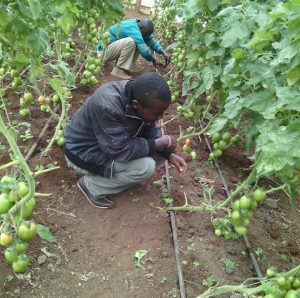
What informed your decision to pursue Horticulture as a course?
Enos- I have always been interested in Agriculture since a very young age. The interest further grew in High School and due to the fact that we practice horticultural farming at home, I settled on the course to be able to go back and improve on that and to further empower the society.
Yvonne- I had a passion in Agriculture since my high school life, and this made me take Horticulture which I believed was the best Agricultural course since it covers several areas.
Sam- My inspiration came from a cousin of mine who works in Naivasha. That was the beginning of my passion in Horticulture.
Esther- To be honest I wasn’t inspired at first to do Horticulture, but the more I learned the more my interest grew, and I now know it was the best decision ever.

How did studying the course at JKUAT satisfy your expectations of the course?
Esther- I would say excellently. This is because I even feel more privileged than students who took other courses. Someone who has done horticulture is knowledgeable in so many other proffered fields like IT, landscaping, engineering, survey and others.
Enos- Honestly studying at JKUAT exceeded my expectations. There’s so much more I learnt that I didn’t even know would be covered in Horticulture like development studies, economics, entrepreneurship and so much more. These have made sure I’m not only equipped with skills but also with the ability to commercialize and market my ideas and even become an employer.
Yvonne- It definitely did because I got so many skills more so the knowledge acquired in the field.
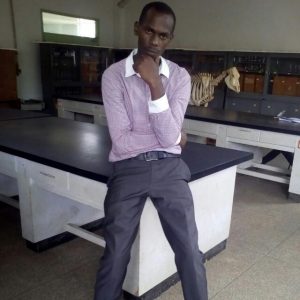
What are some of the memorable activities you remember while studying the course?
Esther- They’re quite a number, but a few include visiting Haller Park in Bamburi, practicals on driving tractors, tissue culture of bananas, plant identification, culturing bacteria and various field trips to different farms.
Enos- Visiting the flower farms was among the most memorable and impactful activities. Through interaction with experts my interest grew. The field attachments were also eye-opening experiences, especially where I could visit farmers to give expert services. This made me realize the large potential I have and what I could accomplish with my skills.
Sam- Visiting farmers to see the practical part of what we learnt in class was among the most memorable experiences.
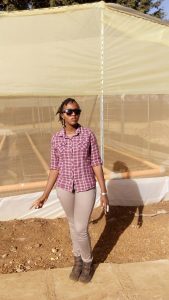
What do you think makes JKUAT an ideal institution to train Horticulture?
Esther- JKUAT has the right equipment and technology to enable its students to undertake all that entails Horticulture. The personnel are very competent at their work. There were minimal technicalities experienced.
Yvonne- I believe JKUAT is the best due to the availability of facilities that are used during the practical sessions, which is very important in any Agricultural course. There are also laboratories and available land.
Sam- The University has the required infrastructure and competent lecturers and to me that makes it the best.
Aside from employment, how do you plan to utilize your skills gathered in JKUAT to impact on the society?
Esther- I developed interest in research during my study and I want to do more research in the field of plant protection, which entails entomology and or pathology. As regards impact I intend to train people on better conservation farming, encourage people to recycle, conserve the environment especially to reduce CO2 emissions in all ways possible and to educate on and encourage organic farming.
Sam- I’m currently planning an initiative with some friends through the County government to ensure our youth are economically empowered through Horticulture. After graduation I hope to actively be engaged in the flower industry.
What personalities in JKUAT had a significant impact in your career development?
Esther- I can say the entire JKUAT fraternity did, for creating an enabling environment for me to study. If I’m to mention a few I can cite Prof. John Wesonga, my project supervisor and lecturer. He was of great help steering us in the right direction. Another one is Prof. J. Nyende, a lecturer in breeding who fostered my interest in research, and Prof. Githiri, lecturer in genetics, the best lecturer ever. There’s also Prof. Ngamau Kamau, who really helped with my attachment at ICIPE. There’s also Dr. Lucy Kananu, Mr. Patrick Karangi, a lab technician who was very helpful. Another technician, Mrs. Rose was equally very helpful. Oh and there was Dr. Owino, a Food Science lecturer, so dedicated to his work. He gave his best. Then there’s Dr. Fredah Wanzala, lecturer and Chairperson of the department. She was always willing to help you and create time for everyone. I think I can’t stop. Let me just say thanks to all my lecturers for a job well done, and to my classmates and friends for being there throughout.
Enos- There are so many I can’t possibly cite all of them. To mention just two, there’s Prof. John Wesonga, who was our lecturer and class advisor. He really challenged us and told us of the potential we were capable of accomplishing with our skills. He was also our club Horticultural Students Association (HOSA) patron and availed various platforms upon which we could learn, develop and nurture our career. Another significant one is Prof. Mary Abukutsa. She was my project supervisor. Apart from her comprehensive and engaging lectures and guidance on practical work, she encouraged us to take more of indigenous vegetables, which is her area of expertise. She totally changed our perspective towards the consumption of indigenous vegetables, and even steered the interest of students in vegetable production. She was thorough and could always push us to our limits. She was never satisfied with substandard work, and was very diligent. She could email me and even send feedback on our class work anytime of the day, sometimes even at night, which really made us take our work seriously because we could see her dedication and concern for our success.
Sam- That would be Prof. John Wesonga, the attachment coordinator. He always reminded me that everything I did was a way of learning and this kept me going.
What fields do you expect to work in with your skills?
Yvonne- From the experience I can handle several jobs, ranging from technical, managerial and also teaching among others.
Enos- I can work in any agricultural research-based institution, any environmental organization dealing with crops, in flower farms, as a lecturer, as an extension officer, or better still, self-employment. There’s something I also wish to address as pertains some people’s negative perception towards Agriculture. The problem with some of the youth is that they associate agricultural courses with dirt, but if they were to know better, anytime they saw soil they would associate it with production and wealth. You’ll notice that even professionals in other fields still venture into farming, and that is because of the huge potential it has. Currently if someone asked me who I am I’d proudly say I’m a farmer.



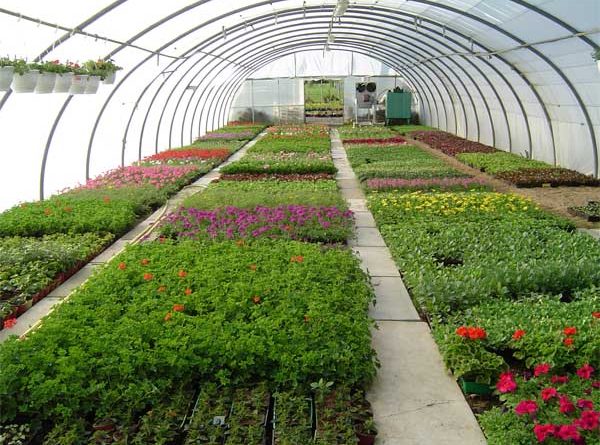
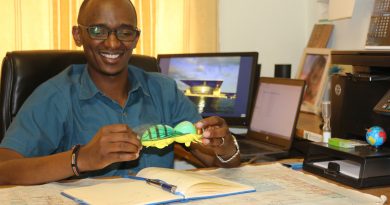


Congratulations to u sam,may u change the society thru your acquired skills
Congratulations to 2016 clas of horticulture.u are a great gift to the society ,@wanjirumashaa